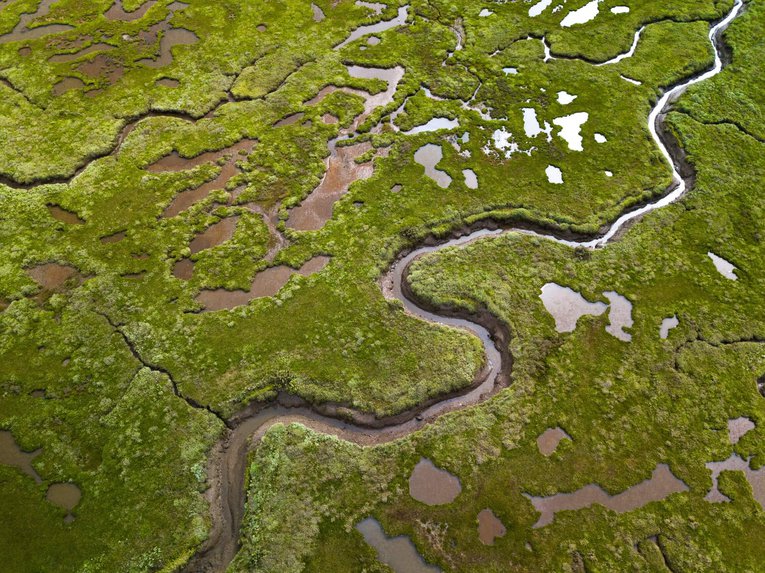
COP26: why we'll be attending the climate summit to demand action for our ocean
With just a week to go until the UK hosts the world's biggest climate change conference, our calls for action must be louder than ever. We need global leaders to recognise the urgency of protecting our ocean and put it at the forefront of COP26 conversations. The climate change clock is ticking.

Credit: Gary Yim via Shutterstock
Why a healthy ocean is vital
The ocean covers more than 70% of the surface of the planet and holds 97% of all water on Earth. Yet, it's often overlooked as a powerful tool in fighting the climate crisis.
The UK’s saltmarshes and seagrass beds alone have the carbon storage potential of between 1,000 and 2,000km2 of tropical forests.
98
%
of carbon stored in the UK's seafloor is found in areas where there are no trawling restrictions
35
x
more CO2 is thought to be absorbed by seagrass than rainforests
30
%
of our carbon emissions are captured and stored by the sea
What we're calling for
In order to reach net zero – a key goal for COP26 climate discussions - the quantity of carbon dioxide taken from the atmosphere and stored in natural solutions must increase. By protecting and rewilding ecosystems in our ocean, blue carbon stores will have increased capacity and ability to store carbon.
Protection
We need to remove damaging fishing activities like bottom-trawling from at least one third of our seas, to allow the seabed to store carbon and let nature recover. Find out about the current state of the UK’s protected seas on our Marine Protection reality checker map and by downloading our Marine unProtected Areas report.
Rewilding
We must restore habitats like seagrass meadows, salt marshes, shellfish beds and carbon-rich seabed habitats, to increase carbon fixing and storage, help nature recover and protect our coasts from floods and storms.
Investment
The UK Government must invest funds in the ocean - and nature-based solutions, including rewilding projects. With such a valuable climate fighting tool facing a crisis through pollution and man-made destruction, it's unbelievable that they're not investing in protecting and restoring our seas.
You can read more about this in our report – Blue carbon: ocean-based solutions to fighting the climate crisis.

Credit: Shutterstock
What exactly is COP26?
The UN-led Conference of the Parties (COP) was set up nearly three decades ago to bring all nations of the world together to discuss climate issues.
World leaders set ambitious targets for reducing their country's emissions, with plans to be reviewed and updated every five years. Now that five years is up, which is why COP26 is such a pivotal summit.
What's on the agenda
In the run up to COP26 (delayed for a year because of the pandemic), countries have been laying out their new climate plans.
To keep the 1.5 degree target within reach, global emissions need to halve by 2030. Many governments, including the UK, have committed to reaching net zero by 2050.
They plan to achieve this by:
- accelerating the phase-out of coal
- stopping deforestation
- speeding up the switch to electric vehicles
- investing in renewable energy

Credit: Image by Silas Baisch from Pixabay
What’s missing from the UK Government’s plans and promises is, crucially, the ocean. Investing in the protection and rewilding of the ocean would help the UK reach its emissions targets faster, and more effectively, than if we continue to just focus on solutions on land.
We’re delighted to be attending the conference in Glasgow in November, so we can speak up for the ocean and make sure that it becomes part of the UK's climate change solutions.
We’ll be urging the UK Government, and decision makers globally, to wake up and #ListenToTheOcean.


